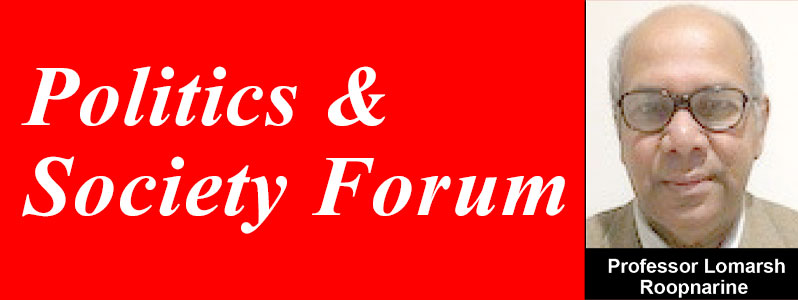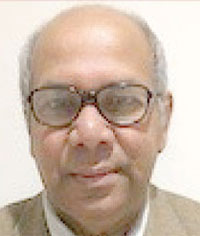I AM convinced that, from March 2 to August 2, 2020, known as the five-month election impasse, was a defining period in Guyana that deserves continuous attention and analysis. At the core are five codas: (a) the exposure of political closeted individuals, elements, and agendas, (b) the determination to slide Guyana into a Coalition despotism, (c) the stubbornness of the APNU+AFC Coalition to remain in power using whatever means possible, including frivolous arguments and court cases, (d) the restless resistance to a, b, c, and (e) the struggle, pain, and restoration of democracy. All five codas have been addressed in the media. I am drawing attention to them to show how some have panned out in ways unfavourable to the Coalition, notably, regarding how they would remain in the opposition for a very long time.
We know now that a trio and possibly more individuals, apart from the PNC-nominated Commissioners, had a close connection with APNU+AFC Coalition before, during, and after March 2, 2020, general election with the intent to gift the Coalition an electoral victory. For this reason, the challenge to the “bloated voter list” was toned down and accepted by the Coalition, amid pressure from local and international bodies to hold a mandated general election, because of the above safety net in GECOM. Curiously, the same bloated list brought the Coalition to power in 2015 and was hence applauded. After the Coalition saw the 2020 general elections results, the touting of the bloated list and the “controversial 47 boxes” narrative rose again. Additionally, the supporters of this narrative on social media have added “new dimensions” of the recount, claiming that it was the PPP who rigged the election not the APNU+AFC Coalition. I know, and I do not mean to put you through this, but this twisted thinking by some known confrontational cats only happens in Guyana.
There are some who never accepted the 2020 general election results, which, ironically and understandably, has been in tandem with Guyana’s election culture and climate: rig, rig, rig. There is something equally sinister following the March 2, 2020, general elections. Behaviourally, the onslaught on the election results might be a carryover from the 2015 general election which survived marginal scrutiny, providing fodder to be repeated in 2020. The difference, or, more so, the red flag, was that by 2020 David Granger’s approach to accepting a new Chairperson of GECOM, for whatever reasons, had left a trail that something was afoot. His reluctance to elect one name from a list of 18 individuals might have emerged from the thought that the 2015 victory episode that brought him and his party to power would be difficult to repeat. Why would he want to change a system that brought him and his party to power defies logic? Nevertheless, he appeared to have finally settled on what happened in 2015 should the Coalition be defeated at the polls. However, after March 2020, attempts to rig the election were clumsy.
Now, since the connection between the Coalition and GECOM was exposed, the challenge is to figure out who was involved in the twisting of the results of the general election. We already know what happened in the weeks following March 2, 2020, as so revealed on social media. Allow me, however, to explore another point of interest. One way to find out who was involved in electoral rigging from behind the scenes in the APNU+AFC camp is to examine those who were sanctioned by the US. The problem is that the US, as a matter of policy, does not release sanctioned names. What appears to be more interesting, however, is what method did the US use to apply sanctions to certain individuals whom it thought were involved in electoral rigging. The US sanction policy applies to all countries, and so, will not apply sanctions willy-nilly to anyone. It relies on secure information and techniques to avoid criticism, and I suspect, that the US might have received confidential information from some individuals within the rigging cabal. What is revealing is that the sanctions were placed on individuals within the APNU+AFC Coalition. The practitioners of rigging are trying to have us believe, claiming the US has installed the PPP in power, ignoring failed promises and policies of Coalition when in power. From a layman’s perspective, it is simply a difficult pill to swallow that the US installed the PPP in power. The Coalition and its supporters are using up vital political oxygen badly needed in other areas to return to power. The US will not entertain the install claim because this is familiar territory to them. Have you heard the US respond to the installed claim? You got the message. Furthermore, and when considering the installed scenario, it would seem odd that an opposition that was essentially shut out of power would be able to rig a general election. (lomarsh.roopnarine@jsums.edu)
Holding on to straw
SHARE THIS ARTICLE :
Facebook
Twitter
WhatsApp











